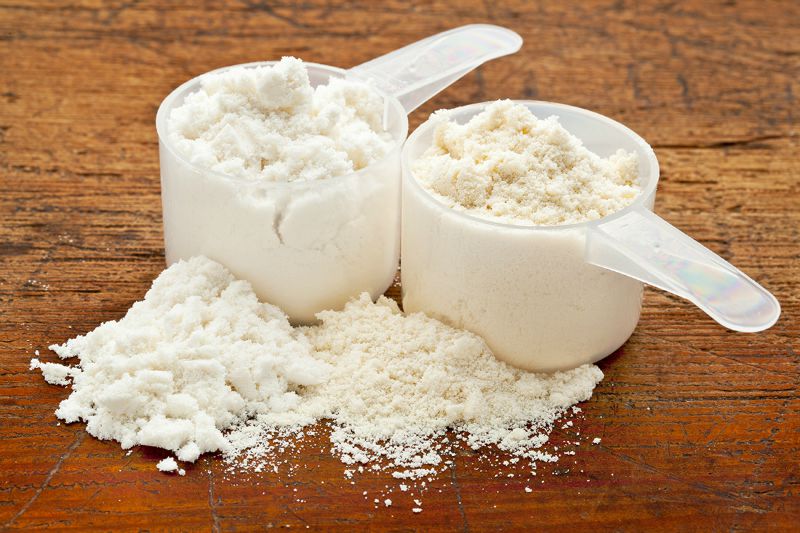If you are not familiar with Casein, it is the main protein found in cow’s milk. It is what gives milk the white, opaque appearance. Casein protein has been extracted for commercial use since the 20th century. Today it is available in a powder form that comes in a variety of flavours and it is mostly used to make workout protein shakes.

What Casein Protein Will Do For You?
Casein is known as a superior protein supplement that offer numerous benefits.
- Helps Build Muscle Mass: Studies have shown that men who drink two casein protein shakes a day (either before or after their workout sessions), after 10 weeks of working out have gained almost twice as muscles than men who do not.
- Speeds Up Muscle Recovery Time: Casein protein powder moves through the digestive tract slower than whey protein and can take even seven hours to be fully digested. Since most of the muscle repair and regrowth occurs when we are asleep, the long digestion time of casein protein powder makes it the ideal supplement to take before bed. Actually, that is the main reason why casein protein powder is considered the perfect ‘night time’ protein.
- Greater Fat Loss: Casein protein powder has high calcium content, which has been proven to be beneficial for fat loss. A study which observed a group of people has shown that those who have had a high calcium intake in 24 hour period have shown increased fecal fat and energy excretion. As you can see, beside providing a higher calcium intake, casein protein powder will also maximize your fat loss.
Casein Protein Suggested Intake
Protein supplements are usually recommended to people who have a hard time meeting their protein needs with food such as strict vegetarians, body builders, etc. If you find yourself in this category, or want to implement casein protein in your daily diet anyway, make sure to get a product from a reputable brand. This will ensure that you are getting a legit casein protein product that is very similar to the one found in its natural form in milk.
Casein Protein Risks And Side Effects
The over-consumption of this protein can impact the normal function of your kidneys and even lead to dehydration, slowed digestion and fat storage. If the body cannot use the excess of protein, it tends to convert it to fat. Also, although allergies are common, they are not related to lactose intolerance. Minor casein protein allergy symptoms are stomach cramps, rashes, bloating, stomach pains and hives.
























